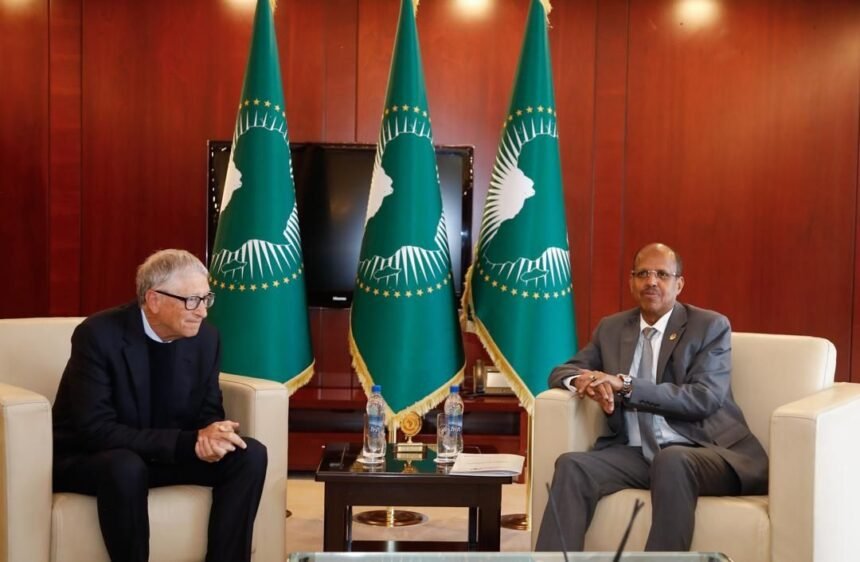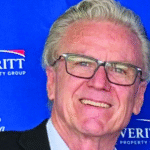DDIS ABABA (June 2, 2025) – In a powerful address delivered at the African Union’s Nelson Mandela Hall, Bill Gates, Chair of the Gates Foundation, called on African leaders to harness innovation and partnership to accelerate progress in health and development, despite global challenges. He announced that the majority of the foundation’s $200 billion commitment over the next two decades will be directed toward Africa, prioritizing governments that place health and wellbeing at the forefront of their agendas.
“I recently pledged that my wealth will be given away within the next 20 years, and the majority of that funding will support efforts to tackle Africa’s most pressing challenges,” Gates told an audience of over 12,000 attendees, including government officials, diplomats, health workers, development partners, and youth leaders, both in person and online. He emphasized the pivotal role of African leadership and ingenuity in shaping the continent’s health and economic future, stating, “By unleashing human potential through health and education, every African nation can chart a path to prosperity, and that journey is one we should all be excited to join.”
Following his speech, Gates engaged in a fireside chat with Dr. Paulin Basinga, the foundation’s Africa director, to explore the investments and collaborations needed to drive sustainable progress. The event also featured calls for unity and shared responsibility from prominent African figures such as Dr. Ngozi Okonjo-Iweala, Director-General of the World Trade Organization, and Amina J. Mohammed, Deputy Secretary-General of the United Nations.
Graça Machel, a renowned advocate for women and children, described the current moment as one of crisis but underscored the power of enduring partnerships. “Mr. Gates’ longstanding collaboration with Africa reflects a deep understanding of these challenges and a profound respect for African leadership, ideas, and innovation,” she said. “We rely on his unwavering commitment to walk alongside us in this transformative journey.”
Dr. Okonjo-Iweala highlighted Africa’s health achievements as the result of strong governance, resilient communities, and effective partnerships. Gates echoed this sentiment, stressing the importance of primary healthcare as the foundation for wellbeing. “Investing in primary healthcare delivers the greatest impact,” he said. “Ensuring mothers receive proper nutrition before and during pregnancy, and that children are nourished in their first four years, makes a life-changing difference.”
Gates pointed to countries like Ethiopia, Rwanda, Zimbabwe, Mozambique, Nigeria, and Zambia as examples of how bold leadership and innovation can yield remarkable results. From expanding frontline health services and reducing child mortality with data-driven strategies to combating malaria and HIV with advanced tools, these nations demonstrate the potential for scalable, homegrown progress.
Reflecting on his more than 20 years of engagement in Africa, Gates expressed admiration for the continent’s resilience and ingenuity. “I’ve always been inspired by the dedication of Africans, even in the most resource-limited settings,” he said. “The grassroots efforts to deliver solutions, even in remote areas, have been extraordinary.”
He also discussed the transformative role of artificial intelligence in Africa’s future, drawing parallels to the continent’s mobile banking revolution. “Just as Africa leapfrogged traditional banking, it now has the opportunity to integrate AI into next-generation healthcare systems,” Gates noted. He highlighted Rwanda’s use of AI-enabled ultrasound to identify high-risk pregnancies earlier, enabling timely, life-saving interventions.
During his visit to Ethiopia and Nigeria, Gates will assess the impact of reduced foreign aid on health and development priorities while reaffirming the foundation’s long-term commitment to the continent. In Ethiopia, he met with Prime Minister Abiy Ahmed to discuss the country’s reforms and resilience amid shifting global aid trends. He also participated in a roundtable with the Ethiopian Public Health Institute on the nation’s iodine-folic acid salt initiative.
In Nigeria, Gates will meet with President Bola Ahmed Tinubu and other leaders to discuss primary healthcare reforms. He will also join a Goalkeepers Nigeria event focused on Africa’s innovation landscape and engage with scientists and partners advancing the country’s AI strategy and health solutions.
This trip follows the Gates Foundation’s historic May 8 announcement of its $200 billion, 20-year commitment to improving lives worldwide. The foundation aims to achieve three core goals: ending preventable maternal and child deaths, eradicating deadly infectious diseases for future generations, and lifting millions out of poverty. At the end of this period, the foundation will conclude its operations.
Over the past two decades, the Gates Foundation has collaborated with African partners to save lives, develop vaccines, and strengthen health systems. Its contributions have spurred over 100 innovations and supported initiatives like Gavi and the Global Fund, which have collectively saved more than 80 million lives. As Gates reaffirmed, “Our foundation’s commitment to Africa is stronger than ever, and we are here to walk this path of progress together.”










